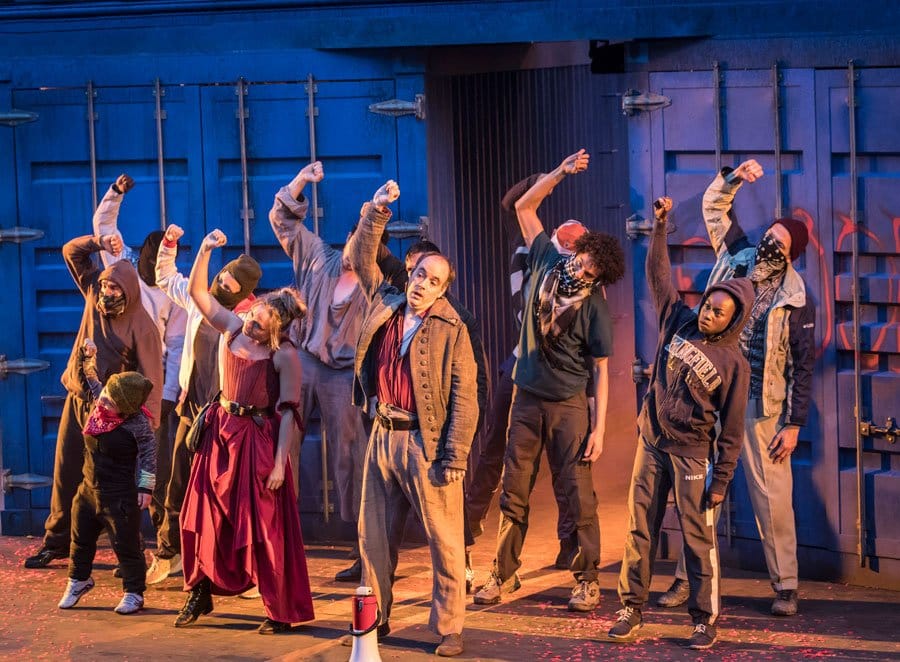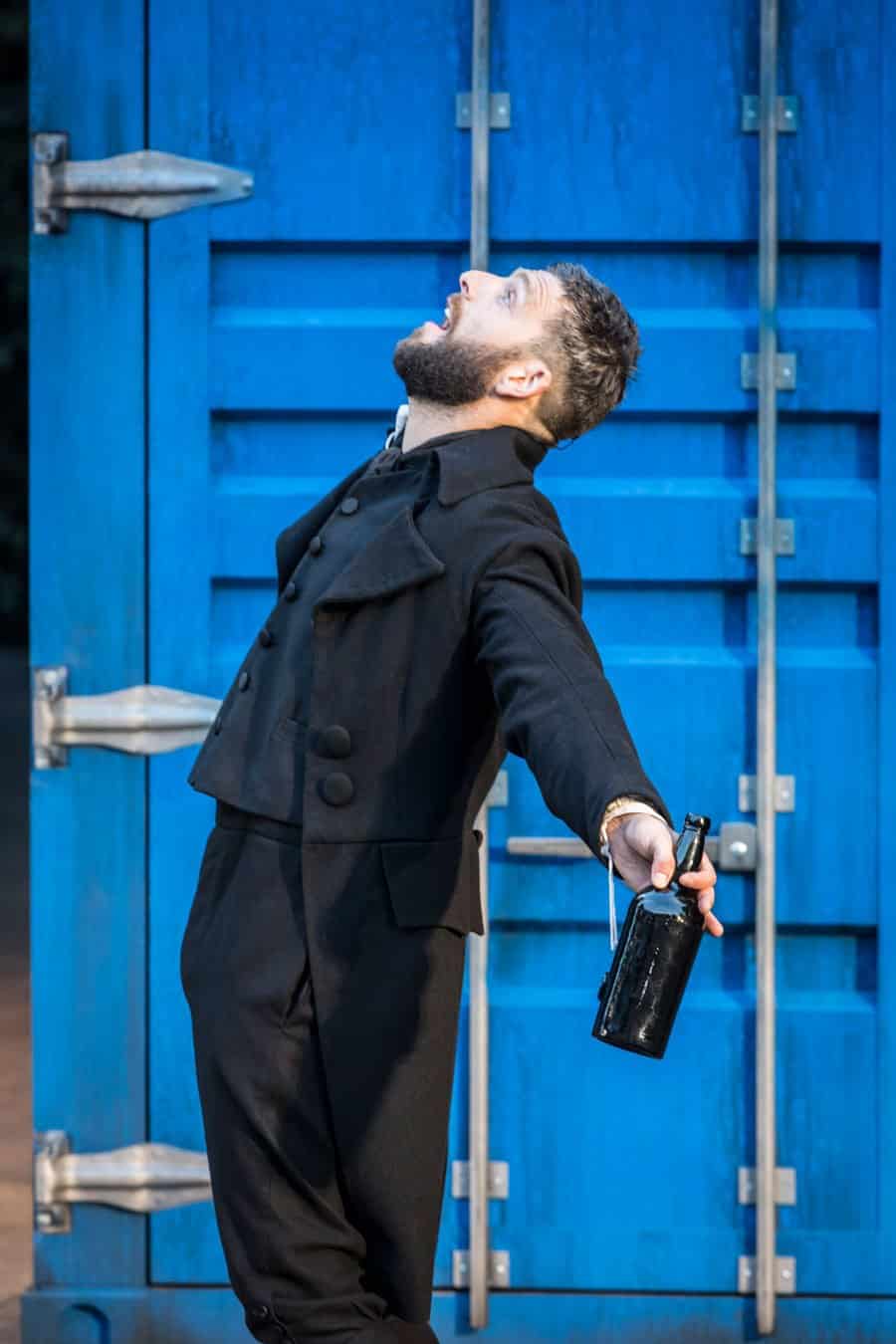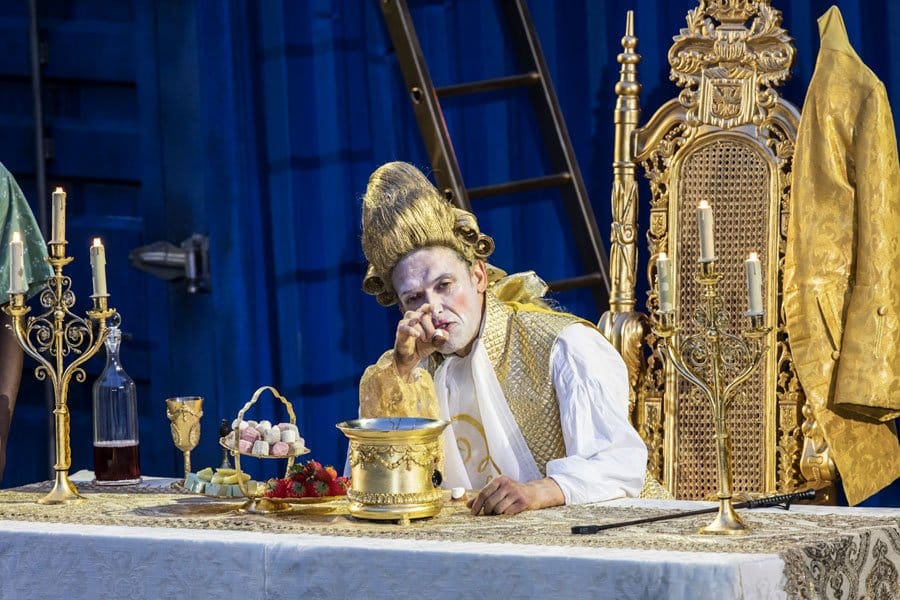
A Tale of Two Cities
Regent’s Park Open Air Theatre
14 July 2017
1 star
Book Now
A Tale of Two Cities was hitting the headlines well before this press night, with reports of families walking out due to the violence and profanity.
The play has since been reworked in response to the furore, and yet, the night I attended (with barely a child in sight), many people still didn’t return after the interval. Not even too crude, just too bad.
This is an almighty muddle of a production that tries to bridge the gap between the 1859 book and the modern day, drawing parallels between the poverty of 1850s Paris and modern day Sangatte.

The production bafflingly mixes both modern and 18th century attire, with Dickensian-style dialogue up against Brechtian scene introductions. It’s like they’ve thrown everything at the wall to see what sticks; the result makes for a difficult experience, and that’s not even factoring in the epic three hour running time.
The story’s plot is complex at the best of times and the mixed-up nature of this production doesn’t lend itself to clarity. Those of us lucky enough to have a programme were able to make some sense of it, but I heard many people saying they were truly lost after the first half, which darted between multiple locations and characters.

Perhaps the screens around the venue could have been used to shed some light on the matter, rather than showing clips of contemporary figures such as Donald Trump (which seems to be a pre-requisite for a show to be green-lighted at the moment).
Whilst the political statement it tries to make is laudable, it is crashingly noisy and unsubtle, with the ensemble often reduced to chewing the scenery. Timothy Sheader (director) and Matthew Dunster (writer) are both accomplished and talented directors and writers; it is hard to fathom what happened here to produce such a dud.

The main bright spot is the music (for which ironically no credit is given in the programme), which provides atmosphere and tension even when it is lacking on stage.
Jude Owusu is also a sincere and touching Charles Darnay, whilst Nicholas Karimi makes great work of a searing final speech as his English counterpart Sydney Carton. However, it is very much a case of too little, too late.
The set from Fly Davis is intriguing, a trio of shipping containers that spring open to reveal various different backdrops. However, the sprawling metallic greyness does nothing to add to a production that seems well adrift of emotion, tone and context.
It might be billed as a tale of two cities, but for me, and those around me, this evening was a tale of one star.
